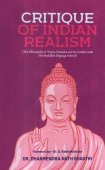Gangesha, Gaṅgeśa: 5 definitions
Introduction:
Gangesha means something in Hinduism, Sanskrit. If you want to know the exact meaning, history, etymology or English translation of this term then check out the descriptions on this page. Add your comment or reference to a book if you want to contribute to this summary article.
The Sanskrit term Gaṅgeśa can be transliterated into English as Gangesa or Gangesha, using the IAST transliteration scheme (?).
In Hinduism
Nyaya (school of philosophy)
Source: Shodhganga: A study of Nyāya-vaiśeṣika categoriesGaṅgeśa (गङ्गेश) or Gaṅgeśa Upādhyāya (13th century A.D.).—The first work of Navya-Nyāya school is Tattvacintāmaṇi which was written by Gaṅgeśa Upādhyāya in about 1200 A.D. This work of Gaṅgeśa is of an epoch-making nature as it has started as if a Nava-yuga (new era) in the development of philosophy in India. From the benedictory verse of the work, it appears that Gaṅgeśa was a devotee of Śiva whom he salutes at the very beginning.

Nyaya (न्याय, nyaya) refers to a school of Hindu philosophy (astika), drawing its subject-matter from the Upanishads. The Nyaya philosophy is known for its theories on logic, methodology and epistemology, however, it is closely related with Vaisheshika in terms of metaphysics.
Languages of India and abroad
Sanskrit dictionary
Source: Cologne Digital Sanskrit Dictionaries: Aufrecht Catalogus Catalogorum1) Gaṅgeśa (गङ्गेश) as mentioned in Aufrecht’s Catalogus Catalogorum:—father of Hariprasāda (Saddharmatattvākhyāhnika). Peters. 2, 188.
2) Gaṅgeśa (गङ्गेश):—Rāmāryāśataka. Kāvyamālā.
Source: Cologne Digital Sanskrit Dictionaries: Monier-Williams Sanskrit-English DictionaryGaṅgeśa (गङ्गेश):—[from gaṅgā > gaṅga] m. Name of the author of the Tattva-cintāmaṇi.
[Sanskrit to German]
Sanskrit, also spelled संस्कृतम् (saṃskṛtam), is an ancient language of India commonly seen as the grandmother of the Indo-European language family (even English!). Closely allied with Prakrit and Pali, Sanskrit is more exhaustive in both grammar and terms and has the most extensive collection of literature in the world, greatly surpassing its sister-languages Greek and Latin.
See also (Relevant definitions)
Starts with: Gangesha dikshita, Gangesha sharman, Gangesha upadhyaya, Gangeshamishra, Gangeshamishra upadhyaya, Gangeshasharma.
Full-text (+17): Tattvacintamani, Shabdakhanda, Pratyakshakhanda, Anumanakhanda, Upamanakhanda, Gangesha upadhyaya, Gangesha sharman, Gangesha dikshita, Sukhalala, Gangopadhyaya, Hariprasada, Katantrakaumudi, Vallabha nyayacarya, Ravishvara, Nyayabhashyakara, Jagadguru, Gangeshasharma, Anumitirahasya, Vardhamana upadhyaya, Didhitividyota .
Relevant text
Search found 17 books and stories containing Gangesha, Gaṅgeśa, Gangesa; (plurals include: Gangeshas, Gaṅgeśas, Gangesas). You can also click to the full overview containing English textual excerpts. Below are direct links for the most relevant articles:
The validity of Anumana (inference) in Nyaya system (by Babu C. D)
Chapter 4.3.1 - Navya Nyaya (a): Tattva-Cintamani of Gangesopadhyaya
Chapter 4.3.6 - Navya Nyaya (f): Philosophers after Gangesha
Vaisesika Doctrines (in the Nyaya Works) (by Diptasree Som)
A comparative study between Buddhism and Nyaya (by Roberta Pamio)
3.1. Perception according to Gaṅgeśa < [Chapter 4 - The Nyāya Theory of Perception]
3.2. Perception according to Viśvanātha < [Chapter 4 - The Nyāya Theory of Perception]
1. Nyāya: A Brief Introduction < [Chapter 4 - The Nyāya Theory of Perception]
Nirvikalpaka Pratyaksha (study) (by Sujit Roy)
Chapter 3 - Nirvikalpaka pratyakṣa in Navya Nyāya
Nyaya-Vaisheshika categories (Study) (by Diptimani Goswami)
The Navya-Nyāya System < [Chapter 1 - Introduction]
Nyāya Concept of Pramāṇa (Introduction) < [Chapter 2 - Salient features of Nyāya-Vaiśeṣika System]
The Syncretic School of Nyāya-Vaiśeṣika < [Chapter 1 - Introduction]
Related products

